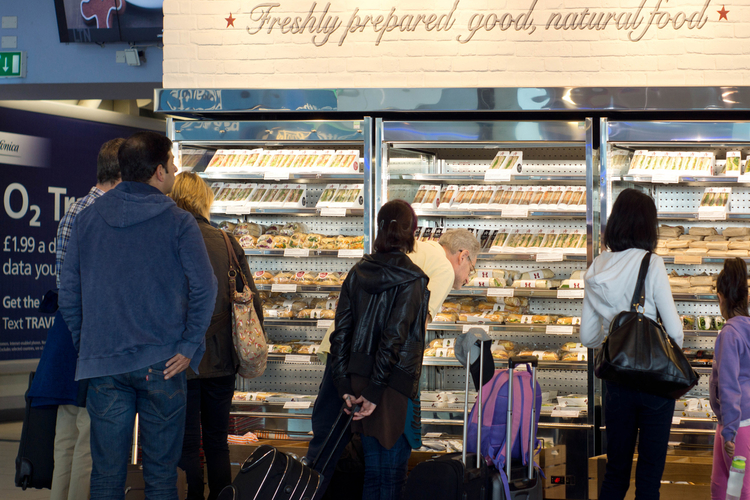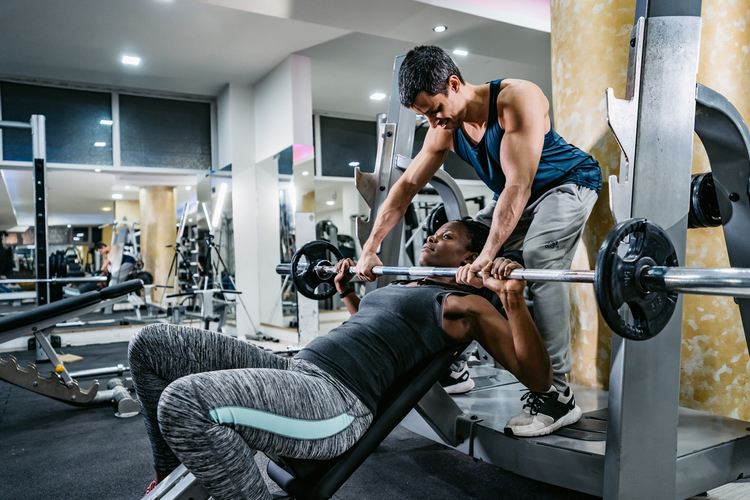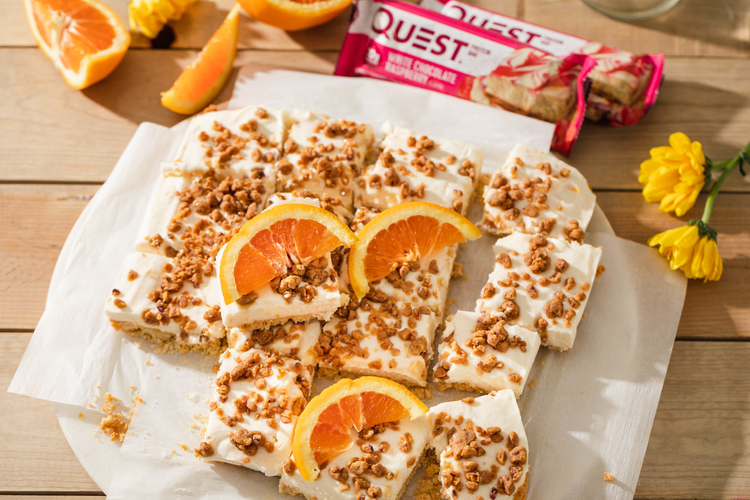Hungry all Day at Home? Here’s Why Protein Should Be Your Go-To Macronutrient
If you’re stuck at home all day and keep heading to the fridge for a snack, it might not be just boredom or proximity to blame.
Yes, mindless snacking can surely happen, and if you know that box of donuts or bag of chips is nearby, you’re going to be more tempted to indulge. Yet, it can also be because you’re lacking a super important macronutrient known for promoting satiety, so you feel fuller longer and won’t feel the urge to head to fridge (once again!).
What’s this magical macronutrient? Protein. Consider protein to be your best friend at taming hunger levels and even aiding in muscle strengthening and repair—so you’ll want to eat it after tough workouts, too!
How many grams of protein should you be getting exactly? “Total protein needs vary from person to person based on body weight and activity level but the minimum protein you need to maintain basic body functions, without exercising above the minimum recommendation of 30 minutes at five days per week, is 0.8 grams per kg, or 0.36 grams per pound,” says Kelly Jones, MS, RD, CSSD, LDN.
“For the active population, intakes of 1-1.6g/kg are likely more appropriate and for athletes and those completing intense endurance or strength training programs, amounts of 1.4-2 g/kg are more appropriate,” she says.
And most importantly, you should be spreading protein out throughout the day for all your meals and snacks, as it’s the best way to fuel yourself all day long and keep hunger levels low.

Why is it So Important?
It’s great for increasing fullness and fueling the body and brain. So, starting your day off with a protein shake, an omelet or egg dish, or a protein-packed yogurt or “toast” (think avocado or smoked salmon!) can be great for boosting brain power.
And it’s also great for post-workout as well, where muscles need protein to repair the damage from the exertion. “When you exercise it is a stress on the body that the body wishes to adapt to. With adequate protein and energy intake, protein is taken up by muscle cells to help them adapt to the stresses of exercise,” says Jones.
In the post-workout recovery phase, muscles are more sensitive to taking up protein so eating within two hours of activity is critical (and sooner if you have a workout planned in less than 24 hours or it’s been 4 hours since you’ve eaten). But, the body may repair from stresses of intense training for 72 hours or more in some instances, so the consistent protein intake throughout the day is most important so you can continue to give protein to your muscle cells for repair and growth afterwards.

What to Eat
For the most part, protein is protein, and research shows that for the general population, as long as you eat all essential amino acids in adequate amounts over the course of the day, the timing of their intake doesn’t matter, says Jones.
Still, the best ones are beef, chicken, fish, eggs, lentils, beans, legumes, whole grains containing protein like quinoa, nuts and seeds, certain bars or shakes with ample amounts, and higher protein veggies, which also offer some fiber. Although during this time, finding protein at your local grocer could be hit or miss. In this instance, it’s always a good idea to have backup sources of protein. That’s where Quest Protein Bars can come into play. With 20-21g of protein per bar and a complete amino acid profile, Quest Protein Bars are essential in this time of Covid-19.
Keep super fatty proteins, like bacon, or those prepared in certain oils, sauces, or butter to a minimum, as these won’t be great for your body or recovery. Think: a bacon double cheeseburger!

What About Pre-Workout?
You should have a little bit of protein before working out and some good carbs to fuel up. “Pre-workout snacks should focus on carbohydrate, with smaller amounts of protein, whereas post workout snacks should contain a combination of the two to effectively recover from exercise, and ensure protein is used for muscle repair rather than energy,” says Jones. So perhaps a little bit of nut butter on a banana or a few crackers will do the trick!

And Post-Workout?
After a tough workout, research shows a dose of 0.25-0.3 g/kg of protein is best to stimulate appropriate muscle protein synthesis, says Jones.
Any protein post-workout is great, as long as it’s cooked well or has a good amount of lean, protein and other valuable nutrients. You can think: eggs, jerky, a protein shake (easy for immediate fuel and on the go!), a protein bar, and edamame.
You may also want to eat foods rich in leucine, or supplement, too. “Research on athletic populations shows that intake of leucine after a workout is most important for stimulating muscle protein synthesis (the reactions that repair muscle),” she says.
It is important to note though, that leucine alone will not be effective in building and repairing muscle optimally—leucine along with all essential amino acids is critical. So pair with other good protein sources. “Foods rich in leucine include dairy, poultry, tuna, salmon, soy products (such as tofu, edamame and tempeh), as well as eggs,” she says. These also happen to be foods considered “high quality” as a protein source due to their content of all of the essential amino acids, so you can feel great eating them!



